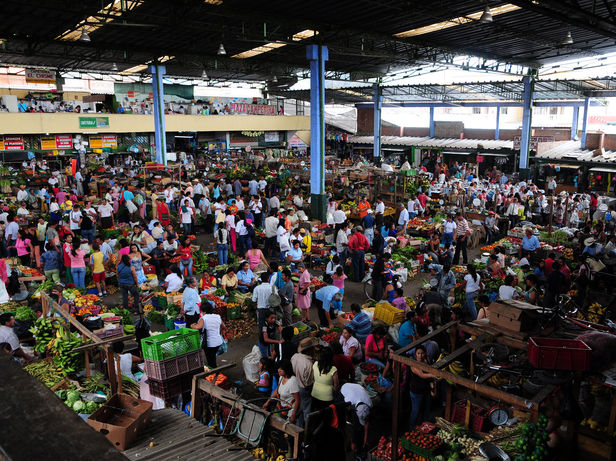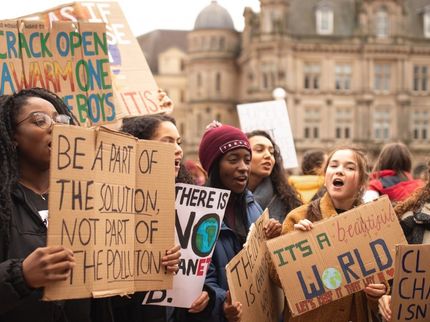Do we need an IPCC for food?
The first United Nations food Systems Summit (UNFSS), scheduled for September, could be as historic to food system transformation as the Rio Earth Summit of 1992 was to climate change. Rio sparked the creation of the Intergovernmental Panel on Climate Change, or IPCC, which has brought scientists and governments around the world together and has greatly increased consensus and understanding of the severity of our global climate crisis. Its Sixth Assessment Report, released this year, was its greatest call to action yet: climate change is widespread, rapid and intensifying.

A food market in the Colombian Andes
Alliance of Bioversity International and CIAT | N. Palmer
While energy takes center stage in climate discussions, a growing number of scientists have shown that food systems are a major contributor to biodiversity loss and climate change. Today’s food systems are also terribly unequal and unhealthy for humans: diet-related disease remains the primary cause of premature mortality globally. The COVID-19 pandemic, conflict and climate change are exacerbated increasing hunger – some 900 million people today are food insecure. Four billion people struggle to access sufficient, and healthy diets, contributing to a public global health crisis that endangers global health even more than the pandemic.
As the human population continues to skyrocket and the climate crisis threatens food production, global action is needed. Would an IPCC for food be part of the answer? Writing in Science’s Policy Forum this week, researchers discuss the potential benefits and drawbacks that such a global food panel could bring.
“Science needs to be better integrated with policy and action,” said Fabrice DeClerck, a researcher at the Alliance of Bioversity International and CIAT contributing to the paper. While many global organizations prioritize food system transformation, including One CGIAR and the EAT-Lancet Commission on Food, Planet, Health, none have the authority to bring together 196 nations like the IPCC did to reduce greenhouse gas emissions in the legally binding Paris Agreement of 2016.
But action on food is as urgent as action on climate. The IPCC’s accomplishments have taken decades of drawn-out negotiations, and we don’t have this luxury for food if we are going to achieve 2030 goals. DeClerck and co-authors suggest that a diverse set of leading food-focused groups could be integrated under a United Nations-style framework to be nimble enough to reach a faster consensus on the major challenges facing food.
Everyone’s knowledge matters
The run-up to the UNFSS has already faced obstacles. As the authors note, some feel that the UNFSS is too focused on technology, or member state driven solutions and excludes many stakeholders, including the globe’s roughly 500 million smallholder farmers and low-income consumers who are at the highest risk of malnutrition and hunger.
For this reason, the authors suggest, we need a knowledge-policy interface that is more inclusive of the food systems’ myriad players.
“We have a tendency to say that scientific knowledge is the only valid knowledge out there,” said DeClerck, who is also the science director at the EAT Forum. “But there is also much indigenous knowledge and local knowledge that can be drawn upon to create robust food system assessments that are more inclusive.”
It is also critical for economic, social and behavioral sciences to be part of global food assessments, which are often led by biophysical, nutritional and climate scientists.
The authors propose three key considerations for an IPCC for food. The first is to understand what already exists in terms of expert knowledge, including the High-Level Panel of Experts on Food Security and Nutrition (HLPE), which an existing and important science-policy interface of the UN Committee on World Food Security (CFS). The second is to understand that “if pluralism, equitable participation, and inclusion of diverse forms of knowledge cannot be ensured, a new platform could do more harm than good.” Finally, effective food system governance cannot be based strictly on scientific input, but interaction between science and action.
“Fostering a just and sustainable global food system requires commitment, political will, and the participation of governments and stakeholders,” say the authors. “The implicit suggestion in many science-policy interface initiatives that the synthesis, assessment, and communication of knowledge will strengthen governance in and of itself is misguided and overly simplistic, and it risks detracting attention away from actual policy action.”



























































